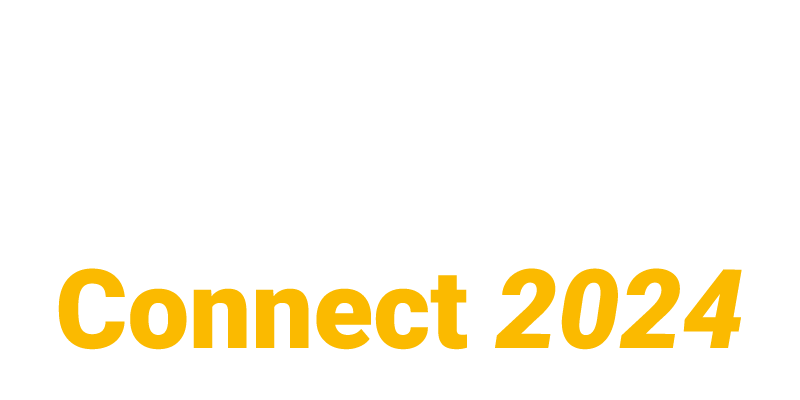
Welcome to Maxwell Connect:
Innovations & Insights 2024
Discover Glo 2023 - Biologically Relevant Models to Advance your Research
10 & 11 September 2024 - Gothenburg
Explore innovation with Promega at our fully sponsored Maxwell user event, welcoming attendees from the Nordics and Estonia. We are limiting this event to a maximum of 50 guests to foster meaningful discussions and engaging interactions. Secure your spot early — it's first-come, first-served.
Last regular registration date 30 August 2024. After that date. please contact your account manager.
Welcome to Maxwell Connect: Innovations & Insights 2024!
Join us for our first Nordic Maxwell User Conference, with presentations given by Maxwell Users and Promega experts. It is a free-of-charge event, dedicated to our Maxwell RSC and CSC instrument users.
Join us in the vibrant city of Gothenburg for inspiring talks dedicated to, and presented by our Maxwell RSC and CSC instrument users and product developers. This unique gathering, set against the backdrop of Gothenburg's innovative spirit, is designed to foster connections, share groundbreaking applications, and explore the future of Maxwell technology.
Why Attend?
- Discover: Dive into user-driven scientific presentations that showcase real-world applications and innovations of the Maxwell instruments.
- Connect: Meet fellow scientists, exchange ideas, and build collaborations that go beyond the conference.
- Learn: Get the latest updates on Maxwell technology and glimpse into the future with previews of upcoming applications and enhancements.
Maxwell Connect is more than a conference; it's a community coming together to push the boundaries of research and application. Whether you're a seasoned Maxwell user or new to the family, you'll find valuable insights, inspiration, and a warm welcome.
Looking forward to connecting with you in Gothenburg!
Dates and location
Join us for an inspirational user conference in Gothenburg!
Promega is thrilled to invite you to a Maxwell user conference spread over 2 days. This event takes place at the heart of Gothenburg, in the brand-new Scandic Central Hotel. The agenda allows you to travel in the morning, and travel back home the day after in the afternoon. This prime location is just a short stroll away from the city center, Göteborg Central Station, and the direct airport bus link to Landvetter. Plus, if you're considering traveling from Denmark, the ferry terminal is just a short taxi ride away.
Conference hotel?
We've designed this seminar to foster productivity and networking, all within the comfort of the Scandic Göteborg Central Hotel's modern facilities. After a day of engaging sessions, you'll find the hotel's accommodations perfect for a restful night.
Scandic Göteborg Central, Vikingsgatan 7, 411 04 Gothenburg, Sweden
What’s Included?
Promega is proud to sponsor your stay, ensuring that hotel accommodations, breakfast, lunches, coffee breaks, and a delightful dinner are all complimentary. All you need to manage is your travel to Gothenburg.
Space is Limited!
Please note that the number of available rooms is limited to 50. Registrations will be accepted on a first-come, first-served basis, so don't delay. Secure your spot today and be part of this unique opportunity to connect, learn, and explore Gothenburg!
Special Dietary requests?
Do you have any specific dietary needs? No worries! Just drop us a quick email at hans.pennings@promega.com, and we'll make sure you're well taken care of.
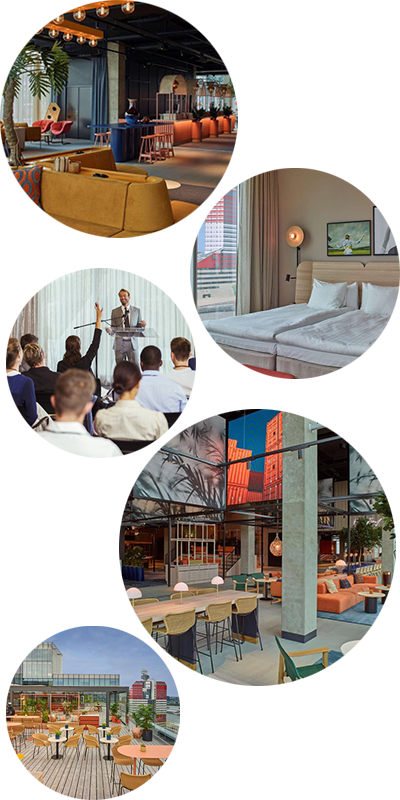

Gothenburg
Gothenburg
Gothenburg, easily reached by train from Oslo and Stockholm, ferry from Denmark, or flight from more distant locations, offers an ideal setting for scientific gatherings. Gothenburg is a vibrant center of science and culture, known for its lively arts scene, innovative culinary experiences, and commitment to sustainability. This friendly city boasts a picturesque archipelago, easily explored through its efficient transport system, making it an inviting destination for visitors seeking both intellectual stimulation and leisurely discovery
Agenda
Day 1: Tuesday 10 September 2024
| Time | Talk |
|---|---|
| 11:00 | Arrival and On-site Registration |
| 12:00 - 13:00 | Lunch |
| 13:00 - 13:15 | Welcome & Opening Remarks Patrick Van de Velde, General Manager Promega Nordic |
| 13:15 - 13:55 | Maxwell® - Pioneering Sample Preparation Solutions to Enable Your Next Breakthrough Rachika Sharma, Product Manager, Genomics & Instruments Promega Corporation, Madison, USA Read Abstract | View Bio |
| 13:55 - 14:35 | Benchmarking of methods for nucleic acid extraction from wastewater Anna J. Székely, Ph.D. Associate Professor, Department of Aquatic Sciences and Assessment, SLU, Swedish University of Agricultural Sciences Read Abstract | View Bio |
| 14:35 - 15:10 |
Coffee and Afternoon Tea |
| 15:10 - 15:50 | Applying the Maxwell CSC system to a clinical workflow – hematology Jakob Syk, Leg. Biomedicinsk analytiker Akademiska Sjukhuset, Uppsala, Sweden Read Abstract | View Bio |
| 15:50 - 16:30 |
Promega High Throughput Chemistries – taking the next step |
| 16:30 - 16:45 | Wrap-up Patrick Van de Velde, General Manager Promega Nordic |
| Time to check in to your room | |
| 18:00 - 18:30 |
Reception & Mingle |
| 18:30 | Dinner in hotel |
Day 2: Wednesday 11 September 2024
| Time | Talk |
| Breakfast (available in the breakfast room from 6:30-8:50) | |
| 08:50 - 09:00 |
Opening Day 2 |
| 09:00 - 09:40 |
The use of Maxwell in the isolation of challenging
cancer samples Soili Kytölä Principal Clinical Laboratory Geneticist HUS Diagnostic Centre, Laboratory of Genetics, Finland Read Abstract | View Bio |
| 09:40 - 10:20 |
Arctic Therapeutics and the use of Maxwell in a biotech company, genetic sequencing and ongoing clinical trials. Olga Ýr Björgvinsdóttir Laboratory Director Arctic Therapeutics, Iceland Read Abstract | View Bio |
| 10:20 - 11:00 |
Coffee Break - Latest check-out |
| 11:00 - 11:40 | Validation of a Cell-free fetal DNA (cffDNA) test for detection of chromosome abnormalities in fetuses from pregnancy losses: A part of the Copenhagen Pregnancy Loss (COPL) study Louise Ambye, Biochemist, cand. scient., Ph.D. The Department of Clinical Biochemistry and Hvidovre Hospitals NIPT Center, Amager Hvidovre Hospital, Denmark Read Abstract | View Bio |
| 11:40 - 12:10 |
Introduction to the Scientific Support Team and round-table Stephen Orr, Technical Services Manager Benelux, Nordics & UK |
| 12:10 - 12:55 | Closing remarks Patrick Van de Velde, General Manager Promega Nordic |
| 12:15 - 13:30 | Lunch (optional) |
Speakers and Abstracts
Promega Speakers

Patrick Van de Velde
General ManagerPromega Nordic
Nacka, Sweden
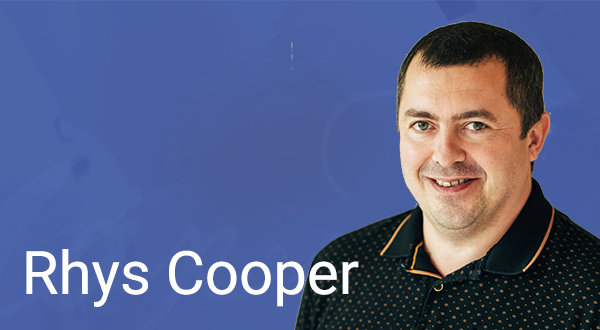
Rhys Cooper
Field Support Scientist EuropeEuropean Automation Support Team
Promega Corporation, UK
Promega High Throughput Chemistries – taking the next step
This talk is about Promega's capabilities to scale up beyond Maxwell.
- What are the options when higher throughput is desired, can the same chemistries as Maxwell be used on other instruments?
- What do I need?
- Where do I start?
- Who do I talk too?
- Promega supplies an extensive list of chemistries and dedicated on site support to ensure your project is successful.
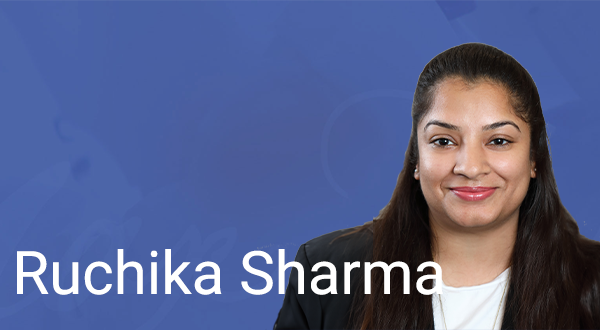
Rachika Sharma
Product Manager, Genomics and InstrumentsLife Sciences Business Unit
Promega Corp., Madison WI, USA
Ruchika is a Product Manager at Promega Corporation based out of Madison, WI, where she oversees the Maxwell® CSC Product line, encompassing instrumentation and reagents for automated nucleic acid extraction for in vitro diagnostic and clinical workflows.
In her current role, she engages and collaborates with customers globally to provide reliable and efficient sample preparation solutions tailored for a wide variety of clinical and other applications. Before joining Promega three years ago, Ruchika honed her skills as a Business Development Manager for a global biopharma manufacturing company and as an Intellectual Property Licensing Manager for the U.S. Federal Government. Ruchika holds a Ph.D. in Biochemistry and Molecular Biology, with extensive scientific expertise in her early career.
Maxwell® - Pioneering Sample Preparation Solutions to Enable Your Next Breakthrough
Promega’s Maxwell® Instruments and associated extraction kits provide an easy, robust, and highly efficient automated benchtop nucleic acid purification system designed to streamline laboratory workflows for a wide variety of applications ranging from research to clinical diagnostics. The Maxwell® family includes instruments and reagent kits with application-based intended uses for automated nucleic acid extraction from various sample types. The Maxwell® RSC instruments and reagent kits are for research use (RUO) while the Maxwell® CSC instruments and reagent kits are CE-marked IVD products with dual mode software that supports both the in vitro diagnostic and RUO applications. Promega is focused on advancing and developing breakthrough extraction technologies for oncology testing and biomarker discovery. In addition to high performing chemistries, we continually strive to remove bottlenecks in sample preparation by minimizing hands-on steps and consolidating workflows. In this presentation, an overview of new and upcoming Maxwell® reagents and applications will be provided, which highlights the latest advancements in liquid biopsy and FFPE tissue extractions.

Stephen Orr
Technical Services ManagerBenelux, Nordics and UK / Ireland
Promega. Southampton, UK
Introduction to the Scientific Support Team and round-table
Stephen leads the scientific and technical support team, based in the UK, which provides dedicated support to customers across the Benelux, Nordics, Ireland, and UK. In this presentation, Stephen will introduce his team of experienced scientists, many of whom you may have already been in contact with, or will work with in the future. They are here to assist you with any technical or scientific questions you may have.
In addition, Stephen and Patrick Van de Velde will take this opportunity to gather your input as users on the types of applications you would like Promega to focus on when developing new protocols and kits. They are also eager to hear your feedback on potential features or capabilities for future Maxwell instrument models.
Maxwell Users
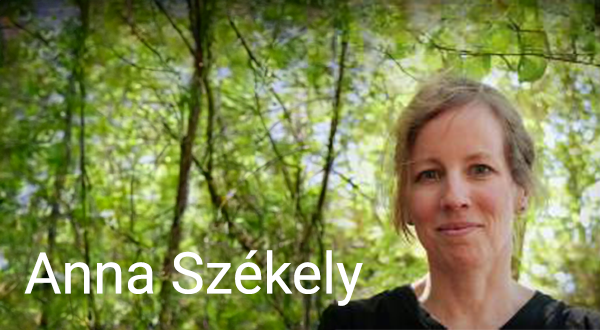
Anna Székely
Associate ProfessorDepartment of Aquatic Sciences and Assessment
SLU - Swedish University of Agricultural Sciences
Uppsala
Sweden
I am an Associate Professor (docent) in Biology with a focus on Limnology. The overarching theme of my research career has been aquatic microbial ecology. I have special interest in understanding the effect of microbial-viral interaction on community assembly and function, the diversity of carbon processing hot-spots within inland water systems and the way microbial carbon processing at such hot-spots happen.
In addition, I have always been dedicated to reveal and address the methodological problems of environmental microbiology to achieve as unbiased view of microbial and viral communities as possible.
Furthermore, I am engaged in science dissemination and outreach. Throughout the years I have organised and participated in diverse outreach activities about microbial diversity and antibiotic resistance. I am also one of the developers of Cure me! an educational game about antibiotic resistance created in collaboration with the Uppsala Antibiotic Center.
Finally, in response to the COVID-19 pandemic, I initiated the measurement of SARS-CoV-2 in the wastewater of Uppsala. I am also the scientific lead of the Environmental Virus Profiling research area of SciLifeLab. The results of our measurements are regularly updated on the CRUSH COVID dashboard and all data is available on the Swedish COVID Data Portal.
Benchmarking of methods for nucleic acid extraction from wastewater
In Sweden the analysis of SARS-CoV-2 virus in wastewater was initiated by independent research groups. The virus content of the sewage measured by these groups showed good correlation with the development of cases and their regular monitoring work was able to predict both the second and third wave of the pandemic in various cities. Through the monitoring work diverse challenges were overcome such as handling the variance in wastewater quality due to the variable weather and large geographic distances of the country, optimization of long-term storage conditions and comparison of fresh and archived samples, and sensitivity improvements to provide optimal surveillance of even small outbreaks in the post-vaccination world. Their collaboration led to the establishment of a capability that today provides surveillance of more than quarter of the population of the country and has embarked on becoming a broad spectrum center of environmental epidemiology.
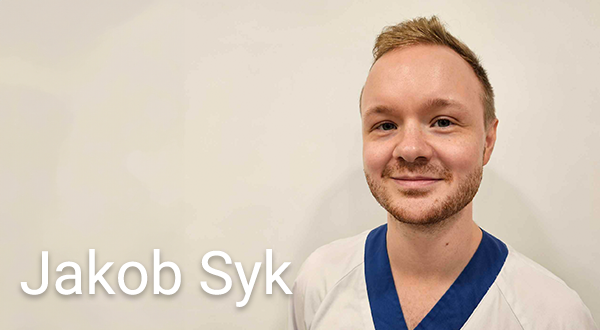
Jakob Syk
Biomedicinsk analytiker
Akademiska Laboratorium
Akademiska Sjukhuset
Uppsala
Sweden
Jakob has been working at Clinical genetics in Uppsala for about 6 years, where he was quickly put in charge of RT-qPCR and RNA purification. During these years, he oversaw the transfer of the previous RNA purification process of using TRIzol to the more automated Maxwell CSC system.
Follow up on different types of leukemia requires a sturdy workflow for extracting RNA from several different sample types, for use in downstream RT-qPCR of different fusion genes. A few common analyses are the different transcripts of the t(9q34;22q11) translocation, commonly known as the Philadelphia chromosome. As many patients with leukemia are followed for many years, a highly sensitive assay is required, stressing the importance of RNA of sufficient quality.
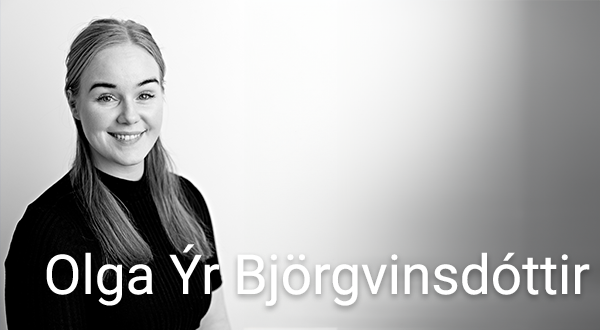
Olga Ýr Björgvinsdóttir
Laboratory Director
Arctic Therapeutics
Akureyri
Iceland
Arctic Therapeutics and the use of Maxwell in a biotech company, genetic sequencing and ongoing clinical trials.
Arctic Therapeutics is an Iceland-based drug discovery and development company that is focused on identifying the genetic underpinnings of both rare and common disease to develop novel and innovative therapies. Its drug pipeline consists of five drug development projects with a wide range of applications. AT's first POC study was based on a founder mutation out of Iceland due to cystatin C mutation (L68Q), which results in accelerated amyloid deposition often clogging brain vessels and causing stroke and/or early dementia, a serious condition called Hereditary Cystatin C Amyloid Angiopathy (HCCAA), this therapy may inform future Alzheimer’s treatment; and treatment of genetically-related similar CAA diseases in multiple other countries. In this talk, we will share our experiences with the Maxwell device in AT's clinical trials in genomic and drug discovery.
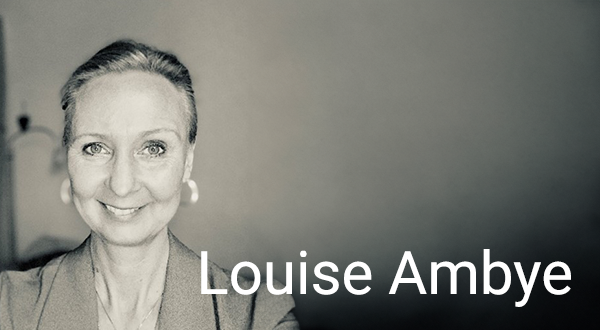
Louise Ambye
Job title: Biochemist, cand. scient., Ph.D.Department of Clinical Biochemistry and Hvidovre Hospitals NIPT Center
Amager Hvidovre Hospital
Denmark
Louise Ambye is a biochemist, Ph.D. at the Department of Clinical Biochemistry and Hvidovre Hospitals NIPT Center, Amager Hvidovre Hospital, Denmark with many years of experience in research in prenatal genetic testing in ongoing pregnancies and pregnancy losses. By focusing on the Non-Invasive prenatal tests (NIPT), Louise and her team have developed an automated in-house pipeline for screening for chromosome abnormalities in fetuses from blood samples from their mothers.
Validation of a Cell-free fetal DNA (cffDNA) test for detection of chromosome abnormalities in fetuses from pregnancy losses: A part of the Copenhagen Pregnancy Loss (COPL) study
L. Ambye1,2, L. Werge1,2, T.S. Hartwig3, S. Bliddal3, E.R. Hoffmann4, F.S. Jørgensen2,3, H.S. Nielsen2
1.Department of Clinical Biochemistry, Amager Hvidovre Hospital, Denmark
2.Hvidovre Hospitals NIPT Center, Denmark
3.Department of Obstetrics and Gynecology, Amager Hvidovre Hospital, Denmark
4.Department of Cellular and Molecular Medicine, University of Copenhagen, Denmark
Background: Non-invasive prenatal test (NIPT) has since 2017 been offered to ongoing pregnant women in Denmark with a high-risk of chromosome abnormalities. The test is used for screening of the most common chromosome abnormalities and is based on a blood sample from the mother containing cell-free fetal DNA (cffDNA) from apoptotic cytotrophoblasts in the placenta. In Denmark one in four pregnancies end in a pregnancy loss. The loss affects couples mentally and the women are in an elevated risk for later health consequences and recurrent pregnancy loss, especially women with euploid pregnancies losses compared with aneuploid losses. The current knowledge of pregnancy losses is poor and most genetic studies have been performed on pregnancy tissues, which might be contaminated with maternal tissue and can be difficult to collect.
Aim: The Copenhagen Pregnancy Loss study is a large initiative with the aim to explore the causes of pregnancy losses. One aim of this project is to develop an easy and quick pipeline for fetal chromosome evaluation in pregnancy losses based on cffDNA in maternal blood and evaluate the method against analyses on pregnancy tissue.
Method: Blood samples were drawn in Streck tubes from 1000 women with pregnancy loss and pregnancy tissue were collected from 333 of these women for validation of the cffDNA-test. Blood samples were centrifuged twice, and plasma were stored at -20°C until extraction of cell-free DNA (cfDNA). CfDNA were purified from 2 ml plasma using MaxWell RSC cfDNA plasma kit and a MaxWell RSC Instrument from Promega. Libraries were built using TruSeqNano DNA LT Library Prep Kit and the libraries were sequenced by Massive Parallel Sequencing on a HiSeq1500 with TruSeq Rapid SBS kit 50 cycles (RS) from Illumina. Data analysis for genetic status were performed using the programs WISECONDOR/DEFRAG/SeqFF. DNA from tissue were extracted and sequenced by shallow sequencing on a NextSeq550.
Results: Comparing the genetic results from the cffDNA-test with the results from pregnancy tissue it showed a sensitivity for aneuploidy detection of 81% (95% CI 73-87) and a specificity of 91% (95% CI 84-95) with an accuracy of 85% for the cffDNA-test. Among the 1000 cffDNA tests 45% were euploid, 45% were aneuploid and 10% were inconclusive (no-calls). The most common chromosome abnormalities were trisomy 16 (n=91), trisomy 22 (n=41) and monosomy X (n=86). 105 (32%) of the 333 women either did not manage to collect pregnancy tissue or collected a sample classified with unknown tissue because of poor quality, giving a high risk of maternal contamination.
Conclusion: The study shows that the cffDNA-test can be used as a pregnancy tissue independent alternative and that 50% of pregnancy losses can be explained by chromosome abnormalities. It is an easy, quick, and cheap test to distinguish women with either euploidy or aneuploidy pregnancy losses. In case of an euploidy result, this may help the woman continuing with further tests to explain her loss and hopefully cure or prevent recurrent loss.
Reference:
Hartwig TS, Ambye L, Gruhn JR, Petersen JF, Wrønding T, Amato L et. al. COPL consortium. Cell-free fetal DNA for genetic evaluation in Copenhagen Pregnancy Loss Study (COPL): a prospective cohort study. Lancet. 2023;4:762-771.
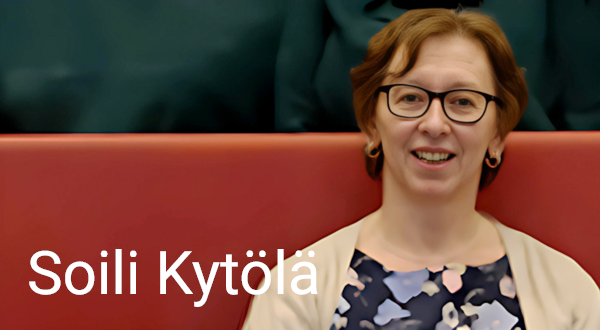
Soili Kytölä
Principal Clinical Laboratory GeneticistHUS Diagnostic Centre, Laboratory of Genetics
Helsinki
Finland
I have always been interested in working on somatic cancer genetics. I teach a lot of doctors, nurses, and students to understand the importance of genetics in confirming the diagnosis of cancer, and assessing prognosis and treatment. I am also involved in many research groups. Cooperation with doctors, other laboratories pharmaceutical companies, and product manufacturers is also part of my job description.
The use of Maxwell in the isolation of challenging cancer samples
In our laboratory, we use Maxwell to isolate DNA from blood, bone marrow, mononuclear cells, cerebrospinal fluid, pleural fluid, ascites fluid and paraffin samples. Some of the samples are pre-treated before isolation. We also use Maxwell to isolate RNA mainly from tissue, blood and bone marrow. The concentration and purity of DNA and RNA is determined with a NanoDrop spectrophotometer or Qubit. In my presentation, I will share our laboratory's experiences with the Maxwell device, its benefits and challenges.
Cost
We are excited to invite you to the Maxwell User Symposium, proudly sponsored by Promega. This special event, spread over two days, includes complimentary meals, drinks, and hotel accommodation. All we ask is that you handle your travel arrangements.
Please note, that spaces are limited to ensure meaningful interactions and a great experience for everyone. If you register, we kindly ask that you commit to attending. Should your plans change, please let us know at least one week in advance so we can offer your place to another participant.
About Maxwell:
Benchtop Automated DNA/RNA Extraction From Any Sample